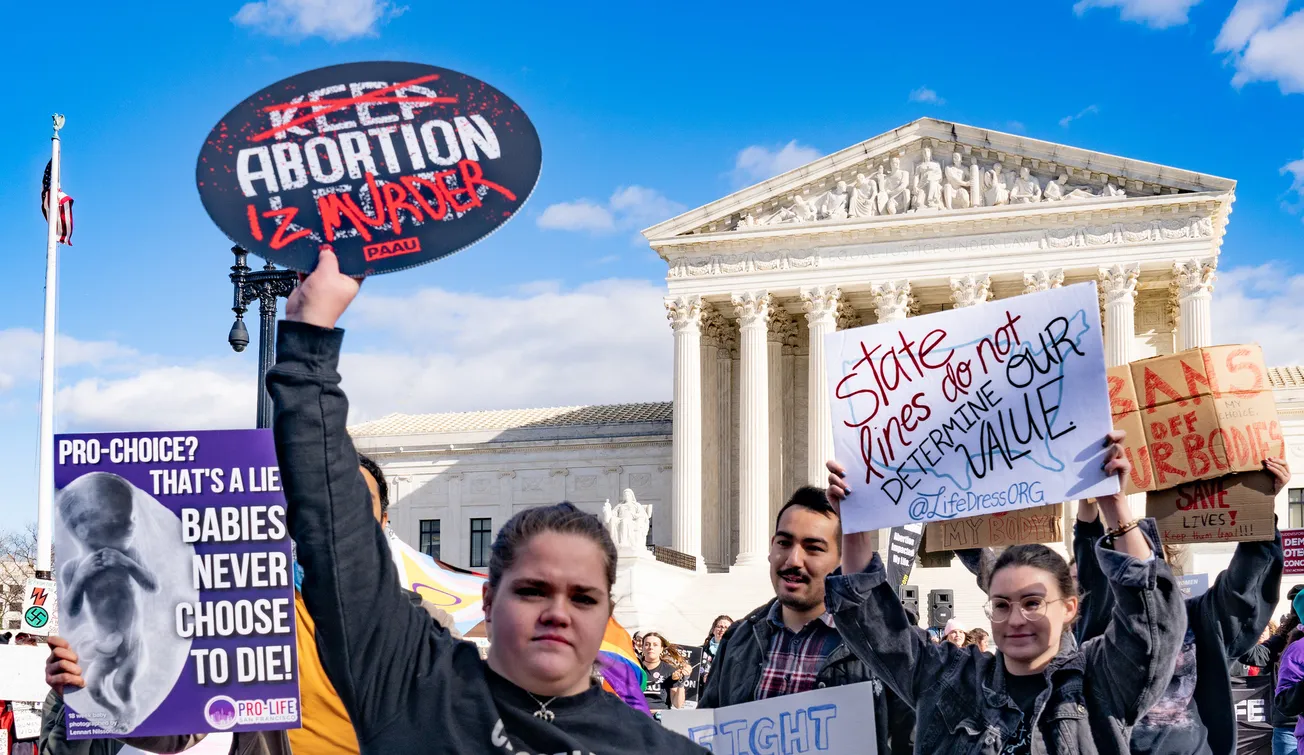Welcome to the latest edition of our weekly roundup. Every Monday, we’ll send you a summary of the biggest stories about bodily autonomy. (This one is coming on Tuesday because of Labor Day.) We’ll also include links to pieces that Garnet or Susan have published.
If you’d prefer to receive a single email every week, you can do that—we love autonomy. You can manage your subscriptions by navigating to the site, clicking on “Account” in the upper right, then under “Emails,” select “Manage.” You can toggle off “Autonomy News” to receive only the roundup, or vice versa.
Let’s dive in.
On Autonomy News
ICYMI, you can now make a tax-deductible gift to support Autonomy News via our fiscal sponsor, Tiny News Collective. We also have some merch on the way soon! (Share this news on Bluesky.)

To help keep our journalism free for all, you can also sign up for a paid subscription or drop a little something in our Tip Jar.
Federal news
The big news last week was that Florida and Texas asked to join a lawsuit against the Food and Drug Administration that would drastically restrict access to the abortion drug mifepristone. They filed to join a case that’s somehow still active in the Amarillo, Texas, courtroom of Judge Matthew Kacsmaryk. Susan wrote more about the move for Slate, namely about how Texas has a more plausible claim that it has legal standing to sue the FDA in Amarillo than did three other state Attorneys General, or a group of anti-abortion doctors. As Rachel Rebouché, the dean of Temple University Beasley School of Law, who specializes in reproductive health law, said: “Texas intervening is an argument that gets closer to demonstrating harm because Texas has sued [a physician for prescribing mifepristone via telemedicine], and there are litigants from Texas suing people in other states.”
There are also multiple ongoing lawsuits against the FDA arguing that it has been overly restrictive when it comes to mifepristone. Recently, a federal judge in Hawaii heard arguments in a lawsuit dating back to 2017, in which a doctor and several medical associations, including the Society of Family Planning, argue that the FDA unfairly limited access to the medication without scientific justification. Recent changes loosened these restrictions somewhat, but mifepristone is still far more tightly regulated than most other prescription drugs, despite the fact that it is safer than many over-the-counter medications. The plaintiffs, represented by the American Civil Liberties Union, aren’t asking the court to immediately lift the restrictions—only to rule that the FDA acted inappropriately.
Days after the Trump administration terminated funding for a sex ed program in California over the state’s refusal to remove content about transgender people from the curriculum, it ordered 40 states, five territories, and Washington, D.C. to remove such references or risk losing funding, too. Individual states and territories are at risk of losing anywhere from $300,000 to $6 million annually.
Workers at Planned Parenthood of Maryland have unionized amid increasing demand for abortions—and as they brace for the fallout of federal funding cuts. The workers say staffing hasn’t kept pace with higher patient volume, and they want more of a voice in their workplace if the bill “defunding” Planned Parenthood affiliates takes effect. They organized with 1199 Service Employees International Union (SEIU). As Autonomy News previously reported, unionized Planned Parenthood workers in Ohio are trying to blunt the impact of layoffs that management proposed due to the federal budget bill.
Speaking of that bad bill, it cuts Medicaid by almost $1 trillion over the next decade, which could force many rural hospitals to close or slash services. Public health researchers worry that these hospitals will cut labor and delivery, one of the most expensive services hospitals provide, which could be dangerous for all pregnant people but especially those with high-risk pregnancies. This has already happened in some rural areas with abortion bans, making all pregnancies there more stressful and dangerous.
State news
HB 7, a Texas law that would expand on the state’s existing bounty hunter abortion ban to crack down on abortion pills specifically, is nearing final approval. Texas’ infamous ban, SB 8, already empowers residents to sue anyone who “aids and abets” an abortion after about six weeks of pregnancy within the state for a bounty of $10,000. HB 7 would institute a new $100,000 bounty for anyone who helps people access abortion pills at any point in pregnancy. The law—versions of which were introduced during the regular legislative session and the chaotic first special session—has already passed in the state Senate.
Texas Alliance for Life, one of the state’s largest anti-abortion groups, was initially concerned that the bill could allow someone “entirely unconnected” to an abortion to sue for the bounty. (This opposition drew the ire of more hardline abortion “abolitionists,” who have repeatedly accused Texas Alliance for Life of killing bills that would truly end abortion in Texas, including but not limited to those that would allow the state to charge people who have abortions with murder.) The organization eventually backed an amended version of the bill passed by the House, which allows only people with direct connections to the abortion to obtain the full $100,000 bounty. Unrelated plaintiffs could only win $10,000, with the remaining $90,000 going to a charity of their choice. This version of the bill also bars domestic abusers and men who’ve committed sexual assault resulting in pregnancy from suing over an abortion. Assuming the Senate approves this new version of the bill, it will soon be headed to Governor Greg Abbott’s desk. He is expected to sign it.
More bad news out of Texas: On August 20, Abbott signed a law that prohibits public funds from being used to pay for travel or “logistical support” for out-of-state abortions. Senate Bill 33 was a response to city governments in Austin and San Antonio earmarking money to help abortion seekers. Austin has now ended its travel fund, while a court had already blocked San Antonio’s in June following a lawsuit from Attorney General Ken Paxton.
A new Kansas law requires schools to show students a three-minute video about fetal development in the classroom. Not surprisingly, the law was backed by anti-abortion groups. Democratic Governor Laura Kelly vetoed it, calling the policy “convoluted, manipulative, and wrong,” but Republican legislators overrode her veto and the law went into effect on July 1. While the law has no standards for scientific accuracy, it also doesn’t mandate that a specific video be shown—unlike a rash of new state laws that require schools to show students the “Meet Baby Olivia” video made by anti-abortion group Live Action. (That video is, you guessed it, exactly three minutes long). The Kansas State Department of Education has encouraged schools to use videos produced by national health organizations or scientific publishers.
The Colorado House of Representatives recently passed a bill that would fully fund Medicaid reimbursements for reproductive health providers using state money should the federal abortion provider “defund” provision go into effect. (Normally, Medicaid is funded with a combination of federal and state dollars.) The bill had already passed in the state Senate, so now it heads to Governor Jared Polis for his signature. Despite its status as one of the only states with no gestational age limit on abortion, Colorado law forbade the use of public funds for abortion until 2024, when a ballot measure changed that. What a difference a year makes.
Lawyers for the state of Missouri argued in court last week that a proposed constitutional amendment that would ban both abortion and youth gender-affirming care doesn’t violate the state’s single-subject rule for amendments because—wait for it—procedures for transgender people can cause a loss of fertility. The ACLU of Missouri sued the state over the proposal having two legislative subjects, and because it claims the ballot summary is misleading: It would ban abortion without actually saying it does that. Now we wait to see if a judge agrees.
The mother of Adriana Smith, the Georgia woman kept on life support because she was pregnant, said last week that baby Chance is still fighting for his life. Doctors performed an emergency C-section on June 13 and Smith was taken off life support a few days later. Chance weighed 1 pound, 13 ounces at birth and, at the time of the interview, he was just under five pounds. Smith was declared brain dead at eight weeks pregnant. Her family said the hospital told them that, due to the state’s six-week abortion ban which is also a fetal personhood law, they had to keep her alive.
Personhood watch
A college student in Kentucky has been arrested and charged with abuse of a corpse, tampering with evidence, and concealing a birth after police say they found fetal remains in her home. It’s unclear exactly what happened; so far, only law enforcement’s version of events is public. Stay tuned.
We don't know what happened here, but people should be aware of a disorder called denied pregnancy where women, often young, do not recognize—or refuse to recognize—that they're pregnant and exhibit few symptoms. The recent documentary "Baby Doe" covers it in depth www.jezebel.com/baby-doe-doc...
— Susan Rinkunas (@susanrinkunas.com) 2025-09-02T16:25:07.072Z
An Illinois man is accused of giving his girlfriend abortion-inducing medication without her consent, but he’s being charged with “intentional homicide of an unborn child”—not with abuse or assault of his partner. This case is the latest important reminder that fetal personhood is already enshrined in homicide law in many states, even those that are considered very protective of abortion rights.
Assaults on queer people
Yet another hospital, this time University of Michigan and its statewide system Michigan Medicine, has announced it will stop providing gender-affirming care for people under 19 years old after receiving a subpoena from the Department of Justice. However, Michigan Attorney General Dana Nessel isn’t having it. Her office issued a reminder to all Michigan health providers that federal actions don’t change the right patients have to obtain health services, including gender-affirming care, under state law. Nessel, the first openly gay person elected statewide, called the university’s decision “shameful, dangerous, and potentially illegal.”
Extremism
Reproductive coercion is abhorrent, full stop: It can involve a partner tampering with someone’s birth control so they get pregnant, or forcing them to have an abortion. Conservatives keep claiming that coerced medication abortions are a reason to end telemedicine prescriptions for mifepristone—but actual abortion providers say it’s far more common for an abusive partner to try to force someone to stay pregnant against their will. “What we’ve seen more than anything else is our patients are making a decision to have an abortion so they’re not connected to a violent partner,” said Dr. Angel Foster of the Massachusetts Medication Abortion Project, a telehealth practice that mails abortion pills to all 50 states. “We hear that every day from our patients, and we also hear from our patients whose partners are trying to force them to continue pregnancies.”
Quick hits
- Brittany Watts, the Ohio woman who was arrested because she suffered a stillbirth at home—after going to the hospital and being sent home, twice—is suing St. Joseph Warren Hospital in Youngstown as well as its parent company. Last week, she added more members of the hospital staff to the suit. It was a nurse who reported Watts to the police.
- Fourteen states have laws that ban “sex-selective abortions,” meaning they prohibit healthcare providers from performing abortions if they think the patient made their choice based on the sex of the fetus; critics call these laws xenophobic. A new study of six states finds that the laws are linked to low birth weight and preterm birth among babies born to Asian immigrant mothers. The research also suggests that the laws don’t impact male-female sex ratios at all, undermining their rationale.
- Post-Dobbs, many influencers have urged their followers to stop using period tracker apps over privacy concerns. (These apps vary widely in terms of their security and data sharing protocols, but overall people should actually be more worried about friends or healthcare workers snitching on them; here’s what you need to know about period trackers and privacy.) A study published this year finds that period tracker use hasn’t gone down—it has continued to trend up.
- A headline that’s also a reminder for Virginians to vote in November: “Abortion amendment could reach Virginia ballot in 2026 if Democrats hold House.” Anti-abortion groups including Students for Life and CatholicVote are knocking doors for candidates who would kill the 2026 ballot initiative, which would create a constitutional right to abortion in Virginia—already the southernmost state on the East Coast where abortion is legal until the third trimester.
Actual good news
The first over-the-counter birth control pill in the U.S., Opill, is expanding contraceptive access: A new study finds that nearly one third of people using it report that they were previously using no birth control method at all. Many users also switched from a less effective method like condoms or emergency contraception.
Palate cleanser
Bonk.
@lovelyearth22 Eww 👀🦭 #sealife #seal #sealtok #funnyanimals #cuteanimals ♬ original sound - Damn Sam
Look at her go!
@iheartgelato_ #ksu #fthemkids ♬ original sound - EpicGamingMusic
Follow Autonomy News on Instagram, Bluesky, TikTok, and LinkedIn.








